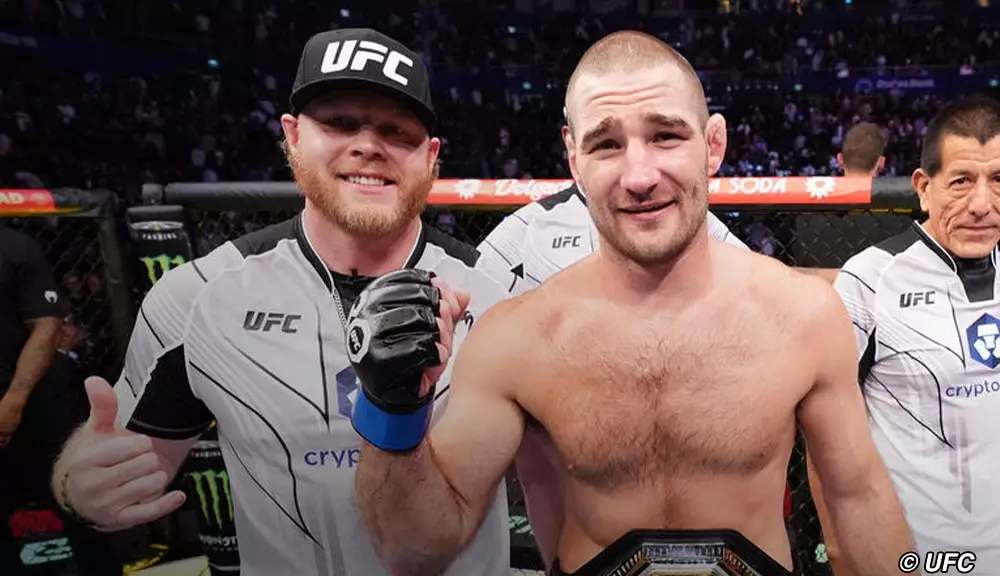Sean Strickland’s recent defeat to Dricus Du Plessis at UFC 312 has ignited a firestorm of discourse, illustrating the formidable rift between athlete and coach. Eric Nicksick, Strickland’s long-time trainer, did not mince words when publicly critiquing his fighter’s performance, raising questions about the motivations and focus of the former champion. Strickland, who had an impressive record of 29-7 before the fight, found himself under the spotlight not only for his on-cage exploits but also for the expectations placed upon him by those in his corner. This public scrutiny adds another layer of pressure that fighters must navigate in the highly competitive world of mixed martial arts.
Friendship or Professional Relationship?
While Nicksick’s comments may have been intended as constructive criticism, they were received with palpable tension. It’s not uncommon for fighters to feel a convoluted sense of loyalty toward their coaches. Strickland’s response to his coach’s words highlighted the complexity of their relationship. Although he values Nicksick as a friend and confidant, the athlete’s professional journey may soon diverge from his coach’s vision. Strickland’s assertion that “will he probably be in my corner? Probably not,” speaks volumes about the potentially irrevocable changes in their professional dynamic. Such a shift underscores a universal issue faced by athletes: the need to balance personal relationships with the pursuit of professional excellence.
Strickland’s fight camp was painted as a “f*cking struggle,” an admission that emphasizes the often-unseen tribulations that fighters face in training. These behind-the-scenes challenges can significantly impact an athlete’s performance in the octagon. Injuries, personal issues, and mental fatigue can create a perfect storm, leading to underwhelming performances. Even champions are not immune to these trials, and Strickland’s honesty sheds a stark light on the realities of elite competition. This candidness provides an opportunity for fans and upcoming fighters to understand that success in combat sports often comes with tremendous hardships.
The Aftermath of Defeat
A unanimous decision loss, especially one as pivotal as this, can have enduring implications for a fighter’s career trajectory. Strickland’s public acknowledgment of the challenges he faced signals a moment of self-reflection, and perhaps a reevaluation of his path moving forward. As athletes reassess their goals and strategies post-defeat, the potential for growth and adaptation surfaces. Now, Strickland must not only contend with his critics but also navigate the implications of Nicksick’s harsh feedback. The question remains: Will this experience galvanize him into a more focused competitor, or will it prompt him to reevaluate his journey in the sport?
Strickland’s situation is emblematic of broader trends within professional sports, where accountability, relationship dynamics, and performance are intricately interwoven. As he weighs his next steps, the discourse surrounding his relationship with Nicksick invites a deeper examination of athlete-coach partnerships in high-stakes competition. It serves as a reminder that the path to greatness can sometimes diverge from established relationships, prompting individuals to seek alignment between personal objectives and professional ambitions. As both fighter and coach move into uncertain territory following UFC 312, the future remains unpredictable, yet rich with potential for reinvention.

